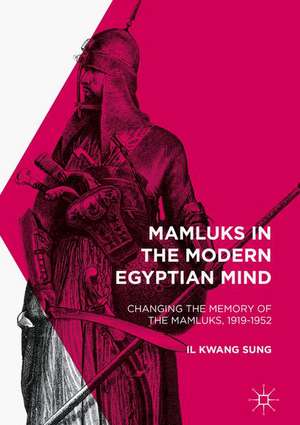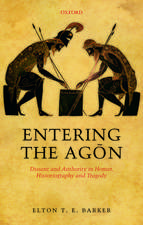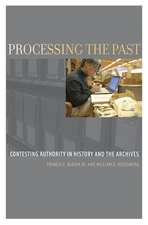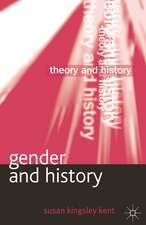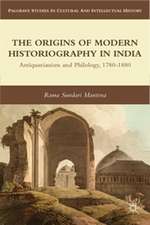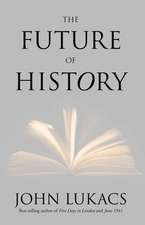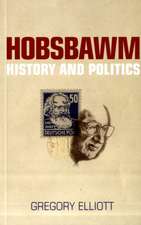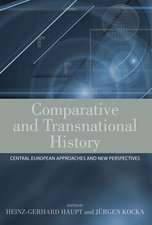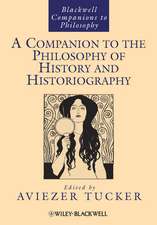Mamluks in the Modern Egyptian Mind: Changing the Memory of the Mamluks, 1919-1952
Autor Il Kwang Sungen Limba Engleză Hardback – 26 noi 2016
Preț: 585.26 lei
Preț vechi: 688.54 lei
-15% Nou
Puncte Express: 878
Preț estimativ în valută:
111.99€ • 122.03$ • 94.37£
111.99€ • 122.03$ • 94.37£
Carte tipărită la comandă
Livrare economică 23 aprilie-07 mai
Preluare comenzi: 021 569.72.76
Specificații
ISBN-13: 9781137557124
ISBN-10: 1137557125
Pagini: 256
Ilustrații: VIII, 239 p.
Dimensiuni: 148 x 210 x 23 mm
Greutate: 0.45 kg
Ediția:1st ed. 2017
Editura: Palgrave Macmillan US
Colecția Palgrave Macmillan
Locul publicării:New York, United States
ISBN-10: 1137557125
Pagini: 256
Ilustrații: VIII, 239 p.
Dimensiuni: 148 x 210 x 23 mm
Greutate: 0.45 kg
Ediția:1st ed. 2017
Editura: Palgrave Macmillan US
Colecția Palgrave Macmillan
Locul publicării:New York, United States
Cuprins
Part I Mamluks in Official Memory.- Introduction.- 1 Representations of the Mamluks in School Textbooks (1921–1949).- 2 Representations of the Mamluks in ‘Ābdīn Project Historians’ Literatures.- Part II Mamluks in Public Memory.- Prologue: Historical Novel and Egyptian Nationalism.- 3 Representations of the Mamluks in Historical Novels and Plays.- 4 Representations of the Mamluks in History Books and Periodicals.
Notă biografică
Sung Il Kwang is a Research Fellow in the Center for Middle Eastern Studies at Konkuk University in Seoul, South Korea. He was a correspondent of Yonhap News Agency in Jerusalem (2008-2012). He was Secretary of the Korean Association of Middle Eastern Studies. He received his PhD from Tel-Aviv University, Israel.
Textul de pe ultima copertă
This book explores how modern Egyptians understand the Mamluks and reveals the ways in which that historical memory is utilized for political and ideological purposes. It specifically examines the representations of the Mamluks from two historical periods: the Mamluk Sultanate era (1250–1517) and the Mamluks under the Ottoman era (1517–1811), focusing mostly on the years 1760–1811. Although the Mamluks have had a great impact on the Egyptian collective memory and modern thought, the subject to date has hardly been researched seriously, with most analyses given to stereotypical negative representations of the Mamluks in historical works. However, many Egyptian historians and intellectuals presented the Mamluk era positively, and even symbolized the Sultans as national icons. This book sheds light on the heretofore-neglected positive dimensions of the multifaceted representations of the Mamluks and addresses the ways in which modern Egyptians utilize that collective memory.
Caracteristici
Casts new light on historical representations of Mamluks Critiques contemporary application of collective memory in Egypt Engages with scholarly and popular literature to provide a comprehensive analysis of depictions of the Mamluks
